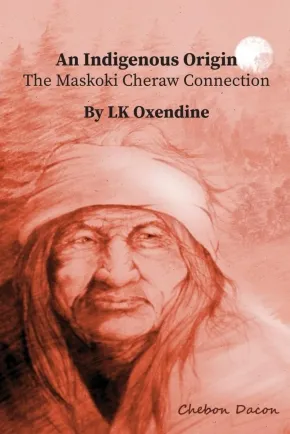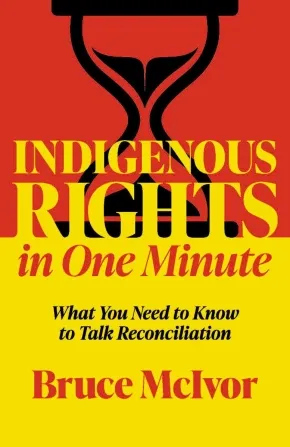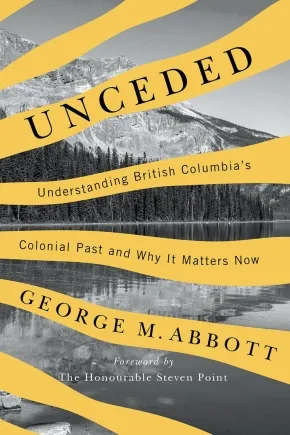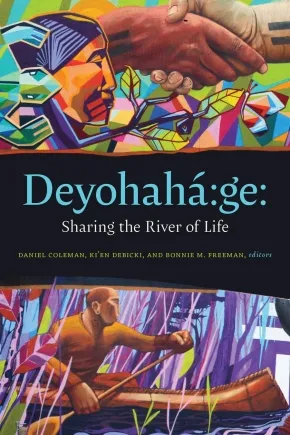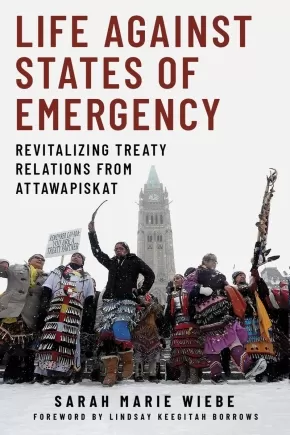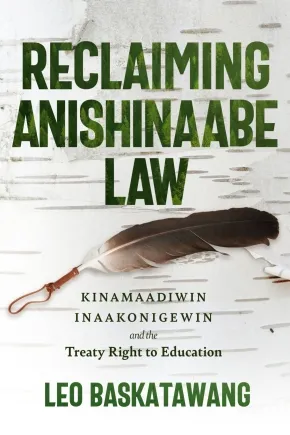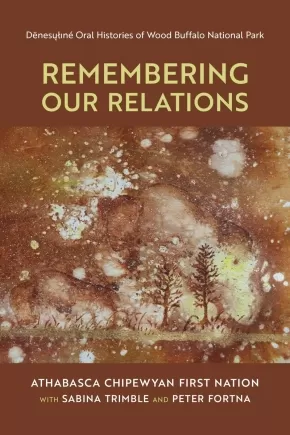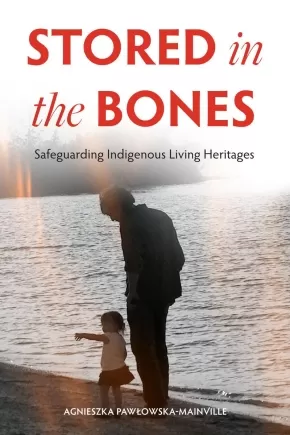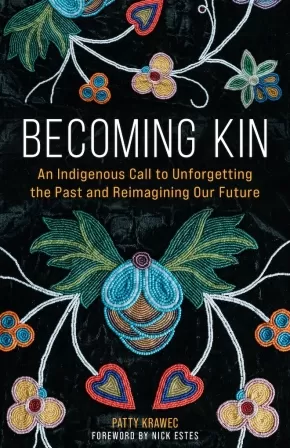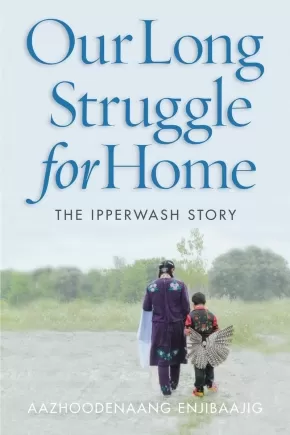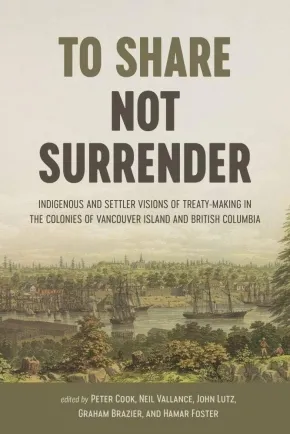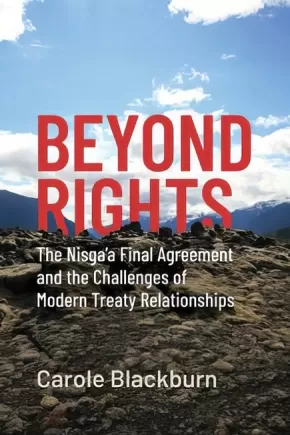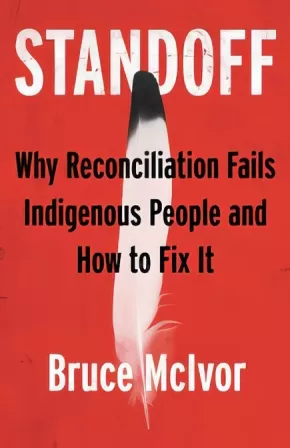Treaties
Synopsis:
An Indigenous Origin – The Maskoki Cheraw Connection unveils a deeply researched and long-overlooked history of the Lumbee Tribe’s ancestral connection to the Cheraw people. Drawing on fourteen years of meticulous research, LK Oxendine uncovers historical records, maps, treaties, and cultural narratives that restore a suppressed identity erased by centuries of denial, displacement, and political marginalization.
From the ancient Maskoki territories to the arrival of Spanish, French, and British forces, this compelling account traces the Lumbee Cheraw’s journey through survival, cultural preservation, and the ongoing struggle for recognition. Oxendine’s work honors the voices of ancestors, the strength of matrilineal societies, and the unbreakable ties between people and land.
Part memoir, part ethnographic history, this book invites readers to witness the truth long hidden in archives and oral traditions, truth that affirms an honorable Indigenous heritage and demands acknowledgment in the twenty-first century.
If you are drawn to Indigenous history, identity reclamation, and the untold stories of the American Southeast, An Indigenous Origin – The Maskoki Cheraw Connection is an essential read.
Additional Information
416 pages | 6.00" x 9.00" | Paperback
Synopsis:
Internationally renowned as an expert in Aboriginal law and an advocate for Indigenous rights, Bruce McIvor delivers concise, essential information for Canadians committed to truth and reconciliation.
A shortage of trustworthy information continues to frustrate Canadians with best intentions to fulfill Canada’s commitment to reconciliation with Indigenous Peoples. To meet this demand, lawyer and historian Bruce McIvor provides concise, plain answers to 100 essential questions being asked by Canadians across the country.
During his nearly three decades advocating for Indigenous rights and teaching Aboriginal law, McIvor has recorded the fundamental questions that Canadians from all corners of society have asked to advance reconciliation: Why do Indigenous people have special rights? What is the Doctrine of Discovery? Who are the Métis? Why was the Calder decision important? What is reconciliation? McIvor supplies the answers Canadians are looking for by scrapping the technical language that confuses the issues, and speaks directly to everyone looking for straight answers. Throughout, McIvor shares his perspective on why reconciliation as envisioned by the courts and Canadian governments frustrates Indigenous people and what needs to change to overcome the impasse. McIvor’s explanations of complex legal issues demonstrate a unique mix of a deep knowledge of the law, the ability to write clearly and concisely, practical experience from the frontlines of advocating for First Nations in courtrooms and at negotiation tables across the country, and a profound passion for justice rooted in his work and personal history.
To ensure the country’s reconciliation project progresses from rhetoric to reality, ordinary Canadians need straightforward answers to fundamental questions. McIvor provides the answers and context to support a thoughtful and respectful national conversation about reconciliation and the fulfillment of Canada’s commitment to a better future for Indigenous people.
Additional Information
208 pages | 5.50" x 8.50" | 25 colour and b&w photographs | Paperback
Synopsis:
In British Columbia, land acknowledgements often refer to “unceded territory.” Yet many people remain uncertain about the history behind these words or their implications for the future of the province.
Unceded reveals the BC government’s history of injustice toward First Nations, providing the context for understanding the province’s current reconciliation efforts, including modern treaty negotiations. Treaty commissioner George M. Abbott combines archival research with a former cabinet minister’s insider perspective on government to chronicle over 150 years of BC-Indigenous relations. Abbott’s account details how early government officials refused to negotiate treaties and instead coerced First Nations onto small and scattered reserves while granting settlers access to vast tracts of land. Despite sustained Indigenous resistance, the situation only worsened as non-Indigenous demands for land and natural resources increased in the decades that followed.
It was only after several Supreme Court decisions affirmed Indigenous land rights that BC sat down at the negotiating table. More recently, the province has taken notable steps toward reconciliation, concluding modern treaties and passing legislation that acknowledges Indigenous rights. As Abbott shows, overcoming the legacy of colonialism is no small task, but achieving justice is worth the effort it takes.
This book is for readers of BC history, those who follow provincial politics, or anyone invested in the future of British Columbia. It is essential reading for elected officials and policy makers and will also appeal to scholars and students of Canadian history, political science, and Indigenous-settler relations.
Reviews
"Unceded is an excellent account of the relationship between First Nation groups and the government of British Columbia. It is well-researched and enriched by interesting insights from George Abbott’s own involvement in more recent developments as a member of the provincial cabinet."— Jim Reynolds, author of Canada and Colonialism and former general counsel to the Musqueam First Nation
"I wish to thank George Abbott for his book about our colonial past. It is only with a better understanding of our history that we can have a better chance of creating a brighter future for First Nations in British Columbia."— From the foreword by the Honourable Steven Point, Grand Chief of the Stó:lō and BC’s first Indigenous Lieutenant-Governor
Additional Information
280 pages | 6.00" x 9.00" | Paperback
Synopsis:
How people today create respectful relationships through peace and friendship.
Deyohahá:ge:, “two roads or paths” in Cayuga language, evokes the Covenant Chain-Two Row Wampum, known as the “grandfather of the treaties.” Famously, this Haudenosaunee wampum agreement showed how Indigenous people and newcomers could build peace and friendship by respecting each other’s cultures, beliefs, and laws as they shared the river of life.
Written by members of Six Nations and their neighbours, this book introduces readers not only to the 17th-century history of how the Dutch and British joined the wampum agreement, but also to how it might restore good relations today. Many Canadians and Americans have never heard of the Covenant Chain or Two Row Wampum, but 200 years of disregard have not obliterated the covenant. We all need to learn about this foundational wampum, because it is resurging in our communities, institutions, and courthouses—charting a way to a future.
The writers of Deyohahá:ge delve into the eco-philosophy, legal evolution, and ethical protocols of two-path peace-making. They tend the sacred, ethical space that many of us navigate between these paths. They show how people today create peace, friendship, and respect—literally—on the river of everyday life.
Reviews
"Deyohahá:ge: brilliantly reminds us of our obligations and responsibilities to one another, and the more-than-human world. It shows that pathways can only be forged by respecting the waters, earth, fires, and skies through which all creation travels.” - John Borrows, Loveland Chair in Indigenous Law, University of Toronto
Educator & Series Information
This book is part of the Indigenous Imaginings series.
Table of Contents
The Words That Come Before All Else
Acknowledgements
Introduction, Daniel Coleman, Ki’en Debicki, and Bonnie Freeman
Section One: Original Instructions
Gä•sweñta’ Reflections. Oren Lyons
Where the Roots Touch: tsi niyothahinen ne Tehontatenentshonteronhtáhkwa, Amber Meadow Adams
Wunnáumwash: Wampum Justice, Kelsey Leonard The Chain, Naturally Understood, Kayanesenh Paul Williams
Section Two: Learning from the River
Guswenta Space: An Invitation to Dialogue, David Newhouse
Navigating the Two Row in the Academy, Vanessa Watts
Two Rows of Reconciliation, Rick Hill
Below Decks in the Covenant: Blackness in the Two Row Tradition, Phanuel Antwi
Towards Peace: Living in the Three White Rows of the Two Row”, Sarah General
Section Three: Living on the River
The Pen Pal Project: Bridging the Divide with the Teachings of the Two Row Wampum Treaty,” Susie Miller and Scot Cooper
Deyohahage Gihe gowa’hneh: Living the Two Row Wampum, on the Grand River, Ellie Joseph and Jay Bailey
The Deep and Rippling Consciousness of Water: The Transition of Youth Experiences with the Two Row on the Grand River Paddle, Bonnie Freeman and Trish van Katwyk
Contributors
Endnotes
Bibliography
Glossary
Index
Additional Information
336 pages | 6.00" x 9.00" | Paperback
Synopsis:
For six weeks in 2012–13, Attawapiskat chief Theresa Spence undertook a high-profile ceremonial fast to advocate for improved Canadian-Indigenous relations. Life against States of Emergency responds to the central question she asked the Canadian public to consider: What does it mean to be in a treaty relationship today? This incisive research weaves together community-engaged research, Attawapiskat lived experiences, discourse analysis, ecofeminist and Indigenous studies scholarship, art, activism, and storytelling to advance a transformative, future-oriented approach to treaty relations. By centring community voices, Life against States of Emergency seeks to cultivate democratic dialogue about environmental justice.
Reviews
"Wiebe’s book is rich, thoughtful, and wise. It centres Indigenous realities and theories, allowing readers to understand how the past informs the present, why representation matters, and how to move collectively toward an environmentally just future."— Jocelyn Thorpe, director of the Centre for Creative Writing and Oral Culture at the University of Manitoba
Additional Information
312 pages | 6.00" x 9.00" | 19 b&w photos, 1 map | Paperback
Synopsis:
A manifesto for the future of Indigenous Education in Canada
In Reclaiming Anishinaabe Law Leo Baskatawang traces the history of the neglected treaty relationship between the Crown and the Anishinaabe Nation in Treaty #3, and the Canadian government’s egregious failings to administer effective education policy for Indigenous youth—failures epitomized by, but not limited to, the horrors of the residential school system.
Rooted in the belief that Indigenous education should be governed and administered by Indigenous peoples, Baskatawang envisions a hopeful future for Indigenous nations where their traditional laws are formally recognized and affirmed by the governments of Canada. Baskatawang thereby details the efforts being made in Treaty #3 territory to revitalize and codify the Anishinaabe education law, kinamaadiwin inaakonigewin. Kinamaadiwin inaakonigewin considers education wholistically, such that it describes ways of knowing, being, doing, relating, and connecting to the land that are grounded in tradition, while also positioning its learners for success in life, both on and off the reserve.
As the backbone of an Indigenous-led education system, kinamaadiwin inaakonigewin enacts Anishinaabe self-determination, and has the potential to bring about cultural resurgence, language revitalization, and a new era of Crown-Indigenous relations in Canada. Reclaiming Anishinaabe Law challenges policy makers to push beyond apologies and performative politics, and to engage in meaningful reconciliation practices by recognizing and affirming the laws that the Anishinaabeg have always used to govern themselves.
Reviews
"Leo Baskatawang offers a passionate call for Indigenous self-determination and a reclamation of Anishinaabe education law and practice in raising up the next generation. This book can be used to envision a future that uses Indigenous treaties to drive systemic change in education."— Brittany Luby
Additional Information
240 pages | 6.00" x 9.00" | b&w illustrations, maps, index, bibliography | Paperback |
Synopsis:
Elders and leaders remind us that telling and amplifying histories is key for healing. Remembering Our Relations is an ambitious collaborative oral history project that shares the story of Wood Buffalo National Park and the Dënesųłıné peoples it displaced.
Wood Buffalo National Park is located in the heart of Dënesųłıné homelands, where Dené people have lived from time immemorial. Central to the creation, expansion, and management of this park, Canada’s largest at nearly 45, 000 square kilometers, was the eviction of Dënesųłıné people from their home, the forced separation of Dene families, and restriction of their Treaty rights.
Remembering Our Relations tells the history of Wood Buffalo National Park from a Dene perspective and within the context of Treaty 8. Oral history and testimony from Dene Elders, knowledge-holders, leaders, and community members place Dënesųłıné voices first. With supporting archival research, this book demonstrates how the founding, expansion, and management of Wood Buffalo National Park fits into a wider pattern of promises broken by settler colonial governments managing land use throughout the twentieth and twenty-first centuries.
By prioritizing Dënesųłıné histories Remembering Our Relations deliberately challenges how Dene experiences have been erased, and how this erasure has been used to justify violence against Dënesųłıné homelands and people. Amplifying the voices and lives of the past, present, and future, Remembering Our Relations is a crucial step in the journey for healing and justice Dënesųłıné peoples have been pursuing for over a century.
Additional Information
352 pages | 6.00" x 9.00" | Paperback
Synopsis:
A new tool for preserving Indigenous cultural heritages.
Intangible cultural heritage (ICH) refers to community-based practices, knowledges, and customs that are inherited and passed down through generations. While ICH has always existed, a legal framework for its protection only emerged in 2003 with the UNESCO Convention for the Safeguarding of Intangible Cultural Heritage. In Stored in the Bones, Agnieszka Pawłowska-Mainville details her work with Anishinaabeg and Inninuwag harvesters, showcasing their cultural heritage and providing a new discourse for the promotion and transmission of Indigenous knowledge.
The book focuses on lived experiences of the akiwenziyag and kitayatisuk, “men of the land” in Anishinaabemowin/Ojibwe and Inninumowin/Cree, respectively. These men shared their dibaajimowinan and achimowinak (life stories)—from putting down tobacco to tending traplines—with Pawłowska-Mainville during her fifteen years of research in Manitoba and northwestern Ontario. By performing their living heritage, the akiwenziyag and kitayatisuk are, in the words of Richard Morrison, doing what they need to do to “energize and strengthen their bones as they walk this Earth." Illustrating the importance of ICH recognition, Pawłowska- Mainville also explores her experiences with the Manitoba Clean Environment Commission regarding the impacts of hydro development and the Pimachiowin Aki UNESCO World Heritage Site nomination.
Stored in the Bones enriches discussions of treaty rights, land claims, and environmental and cultural policy. Presenting practical ways to safeguard ICH and an international framework meant to advance community interests in dealings with provincial or federal governments, the study offers a pathway for Indigenous peoples to document knowledge that is “stored in the bones.”
Reviews
“Pawłowska-Mainville’s study is a robust contribution to understanding sovereignty as a vital well-spring for action today. More importantly, this text properly contextualizes that sovereignty outside of colonial legal framings, and carefully establishes it within the continuous practice of ‘peoplehood’." — Wendy Russell
“This book contributes to ongoing discussions of Indigenous-settler relations in Canada around reconciliation, UNDRIP, and TRC. The environmental assessment context is intriguing and executed productively.” — Thomas (Tad) McIlwraith
Additional Information
320 pages | 6.00" x 9.00" | index, bibliography | Paperback
Synopsis:
We find our way forward by going back.
The invented history of the Western world is crumbling fast, Anishinaabe writer Patty Krawec says, but we can still honor the bonds between us. Settlers dominated and divided, but Indigenous peoples won't just send them all "home."
Weaving her own story with the story of her ancestors and with the broader themes of creation, replacement, and disappearance, Krawec helps readers see settler colonialism through the eyes of an Indigenous writer. Settler colonialism tried to force us into one particular way of living, but the old ways of kinship can help us imagine a different future. Krawec asks, What would it look like to remember that we are all related? How might we become better relatives to the land, to one another, and to Indigenous movements for solidarity? Braiding together historical, scientific, and cultural analysis, Indigenous ways of knowing, and the vivid threads of communal memory, Krawec crafts a stunning, forceful call to "unforget" our history.
This remarkable sojourn through Native and settler history, myth, identity, and spirituality helps us retrace our steps and pick up what was lost along the way: chances to honor rather than violate treaties, to see the land as a relative rather than a resource, and to unravel the history we have been taught.
Additional Information
224 pages | 5.81" x 8.53" | Hardcover
Synopsis:
The Truth and Reconciliation Commission and Indigenous activism have made many non-Indigenous Canadians uncomfortably aware of how little they know about First Nations, Métis, and Inuit peoples. In Braided Learning, Susan Dion shares her approach to engaging with Indigenous histories and perspectives. Using the power of stories and artwork, Dion offers respectful ways to learn from and teach about challenging topics including settler-colonialism, treaties, the Indian Act, residential schools, and the Sixties Scoop. Informed by Indigenous pedagogy, Braided Learning draws on Indigenous knowledge to make sense of a difficult past, decode unjust conditions in the present, and work toward a more equitable future.
This book is a must-read for teachers and education students. It should also be read by students and practitioners in social work, child and youth counselling, policing, and nursing, or anyone seeking a foundational understanding of the histories of Indigenous peoples and of settler colonialism in Canada.
Reviews
“This book should be in every educator’s library. It serves as a model for educators to learn and teach about the history of Indigenous peoples and settler colonialism without fear or reservation. It is exactly what has been asked for over and over again.”— Tracey Laverty, First Nations, Inuit and Métis Education, Saskatoon Public Schools
"Braided Learning is a safe learning space for people at the start of their learning journey about Indigenous education and history. Each reader will take away the parts of the stories that are important to them, just like listeners do when we hear stories in the lodge from our elders. Nobody tells you what to do – you figure it out yourself with some subtle guidance." — Deb St. Amant, elder-in-residence, Faculty of Education, Queen’s University
"Understanding how educators can participate in reconciliation means understanding what stands in the way. Susan Dion understands both. Highly readable, engaging, and passionate, this book moves teachers from apprehension to action. Educators of all levels, read this book and take heed of Dion’s question: “So what are you going to do now?” — Amanda Gebhard, co-editor of White Benevolence: Racism and Colonial Violence in the Helping Professions
Educator Information
Table of Contents
Introduction: Indigenous Presence
1 Requisites for Reconciliation
2 Seeing Yourself in Relationship with Settler Colonialism
3 The Historical Timeline: Refusing Absence, Knowing Presence, and Being Indigenous
4 Learning from Contemporary Indigenous Artists
5 The Braiding Histories Stories / Co-written with Michael R. Dion
Conclusion: Wuleelham – Make Good Tracks
Glossary and Additional Resources: Making Connections, Extending Learning
Notes; Bibliography
Additional Information
288 pages | 6.00" x 9.00" | Paperback
Synopsis:
Most Canadians know only a tiny part of the Ipperwash story – the 1995 police shooting of Dudley George. In Our Long Struggle for Home, George’s sister, cousins, and others from the Stoney Point Reserve tell of broken promises and thwarted hopes in the decades-long battle to reclaim their ancestral homeland, Aazhoodena, both before and after the police action culminating in George’s death.
Offering insights into Nishnaabeg lifeways and historical treaties, this compelling account conveys how government decisions have affected lives, livelihoods, and identity. We hear of the devastation wrought by forcible eviction when the government re-purposed Nishnaabeg ancestral territory as an army training camp in 1942, promising to return it after the war. By May 1993, the elders had waited long enough. They entered the still-functioning training camp, under cover of a picnic outing, and constituted themselves as the interim government of the reclaimed Stoney Point Reserve. The next two years brought cultural and social revival, though it was ultimately quashed as an illegal occupation.
Our Long Struggle for Home also shows what can be accomplished through perseverance and undiminished belief in a better future. This is a necessary lesson on colonialism, the power of resistance, persistence, and the possibilities inherent in recognizing treaty rights.
This is an important read for anyone who seeks a better understanding of the continuing influence of Canada’s colonial history and the injustices that Indigenous people have faced, and is a story that will inspire the Indigenous youth of today. It belongs in schools, public libraries, and reserves.
Reviews
"Our Long Struggle for Home is a beautiful articulation of Nishnaabeg world building and the deep relationality that is our practice to make and remake home. The Azhoodenaang Enjibaajig have gifted us the stories of their struggle to live as Nishnaabeg in their homeland and teach us how to live together in a way that brings forth more life." — Leanne Betasamosake Simpson, author of Noopiming: The Cure for White Ladies
"This is an incredible story about resistance and truth. Our Long Struggle for Home is critically important to the discussion about healing and reconciliation because it brings some clarity to what is taking place in Canada. It is brilliant in its simplicity." — Jerry Fontaine, former chief of the Sagkeeng First Nation
"This excellent book captures the honesty, dignity, and resilience of the Nishinaabe people involved in reclaiming their homeland at Stoney Point. It’s the first time the Ipperwash story has been told from their perspective; it’s a substantial contribution." — Justice Sidney B. Linden, commissioner for the Ipperwash Inquiry
"Our Long Struggle for Home is an excellent book of public education. It illustrates the havoc wreaked on Indigenous communities and complex outcomes of systemic poverty, frustration, and injustice. Through beautiful, and at times devastating, stories, it also offers powerful examples of healing, nourishment, and restoration." — Nicole Latulippe, assistant professor, Geography and Environmental Studies, University of Toronto Scarborough
Educator Information
Table of Contents
Foreword / John Borrows
Maps
Genealogy
Introduction
1 No Word for Surrender
2 “The House Was Gone”
3 Disruption and Determination
4 Under Cover of Prayer Meetings
5 Burying the Hatchet under a Peace Tree
6 Peacekeepers and Nation Builders
7 Taking the Barracks
8 September 5–6, 1995, Project Maple
9 September 5–6, 1995, from Our Point of View
10 After the Shooting
Epilogue: Two Boats Travelling Side by Side
Afterword: Learning to Be Treaty Kin / Heather Menzies
Notes; Index
Additional Information
208 pages | 6.00" x 9.00" | 2 maps, 1 genealogy chart | Paperback
Synopsis:
Too often, history and knowledge of Indigenous-settler conflict over land take the form of confidential reports prepared for court challenges. To Share, Not Surrender offers an entirely new approach, opening scholarship to the public and augmenting it with First Nations community expertise.
The collection appraises the historical and present-day relevance of treaty-making in the colonies of Vancouver Island and British Columbia. The authors take us back to when James Douglas and his family relocated to Fort Victoria on Vancouver Island in 1849, critically tracing the transition from treaty-making in the colony of Vancouver Island to reserve formation in the colony of British Columbia. Informed by cel’aṉ’en – “our culture, the way of our people” – this multivocal work explicitly addresses the tensions between academic research, Indigenous knowledge, and local experience. The collection includes essays, translations/interpretations of the treaties into the SENĆOŦEN and Lekwungen languages, and contributions by participants of the Songhees, Huu-ay-aht, and WSANEC peoples.
The chapters demonstrate that the continuing inability to arrive at equitable land-sharing arrangements stem from a fundamental absence of will with respect to accommodating First Nations world views. To Share, Not Surrender is an attempt to understand why, and thus to advance the urgent task of reconciliation in Canada.
The multiple perspectives presented in this important work will find equally diverse audiences: Canadian historians, scholars and students of Indigenous studies, ethno-historians, legal historians, lawyers practising in the areas of Aboriginal law, and researchers preparing historical reports on First Nation land claims.
Reviews
"The past is with us and history matters. Read To Share Not Surrender as a great example of how there can be different interpretations of the past." — Robin Fisher, The British Columbia Review
"After James Douglas negotiated treaties on Vancouver Island, he never made another in BC. Why not? Some of the foremost experts in the field work here to answer this question, analyzing Douglas’s policies and their lasting impact on BC First Nations’ continuing battle with rights and title." — Daniel Boxberger, professor emeritus, anthropology, Western Washington University
"The connection that To Share, Not Surrender makes between the events of the 1850s and 1860s and the modern-day treaty process in British Columbia is extremely valuable. It helps the reader develop a better understanding, not only of colonial history, but also of the relevance of Indigenous law to territorial claims today." — Kent McNeil, author of Flawed Precedent: The St. Catherine’s Case and Aboriginal Title
Educator Information
Contributors: Keith Thor Carlson, Robert Clifford, Emchayiik Robert Dennis Sr., STOLCEL John Elliott Sr., Elmer George, Stephen Hume, Maxine Hayman Matilpi, Kevin Neary, Adele Perry, Sarah Pike, Chief Ron Sam, and Laura Spitz
Additional Information
330 pages | 6.00" x 9.00" | Paperback
Synopsis:
In 2000, the Nisg̱a’a treaty marked the culmination of over one hundred years of Nisg̱a’a people protesting, petitioning, litigating, and negotiating for recognition of their rights and land title. Beyond Rights explores this ground-breaking achievement and its impact.
Treaty making has long been an important element in relationships between the Crown and Indigenous peoples in what is now Canada, but modern treaties are more complex and multifaceted. Embodying the force of law, they are social and political compacts intended to create lasting reciprocal relationships between treaty partners. The Nisg̱a’a were trailblazers in gaining Supreme Court recognition of unextinguished Aboriginal title, and the treaty marked a turning point in the relationship between First Nations and provincial and federal governments. By embedding three key elements – self-government, title, and control of citizenship – the Nisg̱a’a treaty tackled fundamental issues concerning state sovereignty, the underlying title of the Crown, and the distribution of rights.
Using this pivotal case study, Beyond Rights analyzes both the potential and the limits of treaty making as a way to address historical injustice and achieve contemporary legal recognition. It also assesses the possibilities for a distinct Indigenous citizenship in a settler state with a long history of exclusion and assimilation.
This informed and critical analysis is for scholars and students of Indigenous studies, anthropology, political science, law, and socio-legal studies, as well as for practitioners and Indigenous communities engaged in intergovernmental relations.
Reviews
"Beyond Rights rejects one-sided assessments of modern treaty agreements and provides a nuanced view of their generative potential as well as their inherent limits. It will undoubtedly become a major reference on this topic." — Martin Papillon, professor of political science, Université de Montréal
"Carole Blackburn provides a sophisticated analysis of the Nisg̱a’a land claim and self-government agreement. This is an important and timely book." — Paul Nadasdy, professor of anthropology and American Indian and Indigenous studies, Cornell University
Additional Information
202 pages | 6.00" x 9.00" | 5 black and white photos | Hardcover
Synopsis:
Faced with a constant stream of news reports of standoffs and confrontations, Canada’s “reconciliation project” has obviously gone off the rails. In this series of concise and thoughtful essays, lawyer and historian Bruce McIvor explains why reconciliation with Indigenous peoples is failing and what needs to be done to fix it.
Widely known as a passionate advocate for Indigenous rights, McIvor reports from the front lines of legal and political disputes that have gripped the nation. From Wet’suwet’en opposition to a pipeline in northern British Columbia, to Mi’kmaw exercising their fishing rights in Nova Scotia, McIvor has been actively involved in advising First Nation clients, fielding industry and non-Indigenous opposition to true reconciliation, and explaining to government officials why their policies are failing.
McIvor’s essays are honest and heartfelt. In clear, plain language he explains the historical and social forces that underpin the development of Indigenous law, criticizes the current legal shortcomings and charts a practical, principled way forward.
By weaving in personal stories of growing up Métis on the fringes of the Peguis First Nation in Manitoba and representing First Nations in court and negotiations, McIvor brings to life the human side of the law and politics surrounding Indigenous peoples’ ongoing struggle for fairness and justice. His writing covers many of the most important issues that have become part of a national dialogue, including systemic racism, treaty rights, violence against Indigenous people, Métis identity, the United Nations Declaration on the Rights of Indigenous People (UNDRIP) and the duty to consult.
McIvor’s message is consistent and powerful: if Canadians are brave enough to confront the reality of the country’s colonialist past and present and insist that politicians replace empty promises with concrete, meaningful change, there is a realistic path forward based on respect, recognition and the implementation of Indigenous rights.
Additional Information
208 pages | 5.50" x 8.50" | Paperback
Synopsis:
In a world that requires knowledge and wisdom to address developing crises around us, The Gatherings shows how Indigenous and non-Indigenous peoples can come together to create meaningful and lasting relationships.
Thirty years ago, in Wabanaki territory – a region encompassing the state of Maine and the Canadian Maritimes – a group of Indigenous and non-Indigenous individuals came together to explore some of the most pressing questions at the heart of Truth and Healing efforts in the United States and Canada. Meeting over several years in long-weekend gatherings, in a Wabanaki-led traditional Council format, assumptions were challenged, perspectives upended, and stereotypes shattered. Alliances and friendships were formed that endure to this day.
The Gatherings tells the moving story of these meetings in the words of both Indigenous and non-Indigenous participants. Reuniting to reflect on how their lives were changed by their experiences and how they continue to be impacted by them, the participants share the valuable lessons they learned.
The many voices represented in The Gatherings offer insights and strategies that can inform change at the individual, group, and systems levels. These voices affirm that authentic relationships between Indigenous and non-Indigenous peoples – with their attendant anxieties, guilt, anger, embarrassments, and, with time, even laughter and mutual affection – are key to our shared futures here in North America. Now, more than ever, it is critical that we come together to reimagine.
Reviews
“Very impressive. The contributions of these men and women are noteworthy and deserve to be read and available to all persons who are interested and want to learn from them.” — The Hon. Graydon Nicholas, Chancellor and Endowed Chair in Native Studies, St. Thomas University, and Former Lieutenant Governor of New Brunswick
“Shirley N. Hager’s gentle and affirming spirit shines through as she introduces the reader to this unique, collective experience. I felt so much gratitude for each participant, opening themselves to let strangers in.” — Beth Clifford, Curriculum Coordinator, Maine Indian Education
“I had intended to only take a quick look at the book and come back to it later, but once I started reading I couldn’t stop. The Gatherings is a very well-constructed book of great importance both as a cultural document and as a tool for teaching and learning.”
Educator Information
Mawopiyane
Gwen Bear
The Reverend Shirley Bowen
Alma H. Brooks/Zapawey-kwey
gkisedtanamoogk
JoAnn Hughes
Debbie Leighton
Barb Martin
Miigam’agan
T. Dana Mitchell
Wayne A. Newell
Betty Peterson
Marilyn Keyes Roper
Wesley Rothermel
Afterword by Dr. Frances Hancock
To reflect the collaborative nature of this project, the word Mawopiyane is used to describe the full group of co-authors. Mawopiyane, in Passamaquoddy, literally means "let us sit together," but the deeper meaning is of a group coming together, as in the longhouse, to struggle with a sensitive or divisive issue – but one with a very desirable outcome. It is a healing word and one that is recognizable in all Wabanaki languages.
Table of Contents
Foreword
With Gratitude
Notes on Terminology
Introduction
Gathering
The Talking Circle
Miigam’agan
Wayne
Gwen
Dana
Alma
Barb
gkisedtanamoogk
Shirley H.
Debbie
Shirley B.
Wesley
Marilyn
Betty
JoAnn
The Last Gathering
The Decision
Hindsight
The Gatherings: May 1987 to May 1993
Creating This Book
The Giveaway Blanket
The Circle and Ceremony
The Circle and Decision Making
Ceremony: Protect or Share It?
Allies, Friends, Family
Beginnings
The Women Compare Notes
The Relationship Evolves
Mutuality
How We Got Here
The Doctrine of Discovery
But What about the Treaties?
The Personal Is Political
Economic Self-Determination
Beginning to Make Amends
Some Progress ... and a Long Way to Go
How It Could Be Different
Being Here Legitimately
Acknowledging First Peoples/Honoring the Treaties
An Indigenous Worldview
The Need for Gathering Spaces
Creating a Gathering Space
Working Together on a Cause
Humility versus “White Guilt”
Non-Natives Working with Our Own People
Entering the Longhouse
Being in the Relationship: An Afterword by Dr. Frances Hancock
Appendix: How This Book Came to Be
Notes
Suggested Resources
Contributors
Map: Location of the Gatherings
Reader’s Guide
Index
Additional Information
304 pages | 6.00" x 9.00" | 23 illustrations
Authenticity Note: This book's contributors are Indigenous and non-Indigenous. Readers must determine if this works as an authentic Indigenous work for their purposes.

